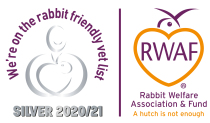A NEW DOG
Having a dog is jolly good fun but before getting a puppy there are many factors that should be considered to avoid problems. A dog can live into it's into it's mid teens and certainly a dog is for life and not just for Christmas!
Before getting a dog you need to decide what sort and size of dog you want. Getting a pure breed means you know what your puppy will grow into but there are some very nice mutts out there! From a health point of view a dog that is dog shaped and about 15-25kg when mature is ideal!
Most pure breed dogs were developed as working dogs to do a specific function and although we see some working dogs the vast majority are now kept as pets and companions. However the purpose for which they were originally bred will affect their activity levels and behaviour. Large active dogs need more exercise than small dogs, and collies are programmed to chase and need an outlet for their energy. This makes them ideal for fell runners and a good choice for those wanting to do agility work. Although greyhounds are specialised athaletes they are actually quite lazy.
Adult dogs are often available from rescue shelters. Getting an adult dog means that you already know what size and temperament you are acquiring and house training etc has already been dealt with. Some dogs from Rescue Shelters may come with emotional ‘baggage’ so be careful about this. A well run rescue shelter should help with this and match you with a dog appropriate to your life and experience.
Local rescue shelters include the Blue Cross and Jerry Greens, both at Thirsk.
www.bluecross.org.uk/1714-2613/thirsk-adoption-centre.html
Many breeds have their own rescue schemes.
If you are getting a puppy then you should purchase directly from the breeder and NOT from a dealer/pet shop/ third party. Unsurprisingly it has been shown that you are far less likely to have a dog with behavioural problems if you have met its parents, met the breeder and seen where it has been bred. Responsible breeders will not sell through a third party and will want to meet the prospective owners of pups they have bred. Never buy a pup unseen on line or from someone you meet up with away from their premises. You could be encouraging illegal imports or puppy farming – or both!
Puppy purchase needs to be taken seriously as a dog is for life and puppy purchasers can have a significant influence on dog welfare.
There are inherited problems in many breeds of dogs –selective breeding gives a restricted gene pool and breeding for extremes of shapes can be unhealthy. Reputable breeders breed to avoid these problems and will have had the parents screened. You can check what problems your chosen breed may be prone to and ask the breeder about screening.
www.bva.co.uk/canine-health-schemes
www.ufaw.org.uk/genetic-welfare-problems-intro/genetic-welfare-problems-of-companion-animals-intro
There is a wealth of information on the kennel club website on the DNA tests they offer for different breeds so you can check that your puppies breeder has carried out the appropriate tests for the breed. New DNA tests are coming on stream all the time.
www.dogbreedhealth.com is a website with information on the health of different breeds of dogs plus general sensible advice on getting a puppy.
The Kennel Club run an Assured Breeder Scheme which can help you find a responsible breeder.
Importing rescue dogs from abroad is something we are seeing more of. If you are considering this then you need to do some serious homework. Despite being 'checked over', vaccinated & neutered we have seen some dogs imported with serious health problem that were not picked up pre importation - so the 'checkover' may not be that thorough. We have had distemper locally in imported dogs,and there is an increased chance of importing a dog with an exotic disease that may be difficult to treat or even zoonotic. There has been a recent increase in the incidence of Brucella canis seen in imported dogs which is a disease that can be transmitted to people and is incurable - and there have been a couple of human cases resulting from contact wtih infected imported dogs. Dogs can be blood tested for this as well as other imported dogs but in our experience it is rare for importers to perform these tests prior to importation. The risk of Brucella is higher in pregnant people & those who are immunosupressed and the disease can be life changing.
A poorly socialised street dog may also have behavioural problems that can be hard to deal with and there are welfare problems associated with importation - 20 hour journeys in vans etc. There is legistlation governing the transport welfare for farm animals but not for rescue dogs.
Once you've done the groundwork and got your puppy then the hardwork begins!
You will be able to discuss you puppy’s health and development with the veterinary surgeon when you bring your puppy in for their vaccines and health checks. One of the most important factors when bringing up your pup to be a well behaved confident dog is socialisation. Anything a puppy meets between 6-16 weeks is accepted as normal but when a puppy is 5-6 months it is programmed to be wary of new things. Delaying your puppy’s exposure to the world can result in a nervous dog and it is a nervous dog that may bite. A bold confident dog is much less likely to bite and as many bites are a result of fear rather than aggression then a well socialised dog is both a happier and safer pet.
This website provides a guide to socialising puppies. We do not offer classes at the surgery; socialisation should be a way of life and not an hour a week activity. Training dogs basically boils down to rewarding good behaviour and ignoring bad behaviour; your dogs instinct is to try and get your attention by pleasing you. Many times bad behaviour is something that your dog has been inadvertently trained to do. Telling your dog off when it behaves how you don’t want it to involves giving your dog attention which reinforces the aberrant behaviour. So remember to praise your dog when it is good & try not to reward you dog (give it attention) when it is doing somethng you dont want it to do.
Games are fun for you & your dog, give both of you some mental & physical stimulation and help develop a good bond between you & your dog. Different breeds, that were bred to work enjoy different games so experiment to see what you both enjoy.
Socialisation isn't just about getting your puppy to new things. Your puppy also needs to be able to cope with experiences you expect it to come across in its life. This includes being left without showing signs of separation anxiety which could be manifested as inconvenient behaviour (barking / destructive behaviour) and causing your dog distress. Acitivty toys can help your dog cope with being left. Information on teaching your puppy to self sufficient can be found on this dogs trust page
Useful tips can be found on this site http://www.dogmonitorapp.com/separation-anxiety/
Dogs were originally kept to work - guard, hunt etc and although some dogs like sheep dogs, sniffer dogs etc do still work the majority of our pets are kept as companions.Boredom can be furstrating for dogs and lead to behavioural problems so your dog needs activities. Training & agility work can be great fun and more activity tips for your dog (and you) can be found here
Training should be a fun way to interact with your dog & to encourage desired calm behaviour and classes can be a good idea. For training on your own & looking for fun games to train your dog then the Absolute Dogs Youtube chanel with lots of top tips.
If you have any questions regarding your puppies behaviour then please phone the surgery and speak to one of our nurses. We are offering monthly free nurse consults from the time of second vaccination to 6months - an ideal opportunity to discuss both behaviour and parasite control.
The Dogs Trust (in conjunction with the Royal Veterinary College and Bristol Vet School) is setting up a study to follow dogs as they grow from puppyhood to adulthood and are looking for owners of pups aged 16 weeks or younger to sign up and be part of this study. This is an opportunity to find out more about puppies and make a contribution to understanding dog develpoment and improving the welfare of dogs.More information can be found at www.generationpup.ac.uk
A useful Puppy Guide can be found here.






